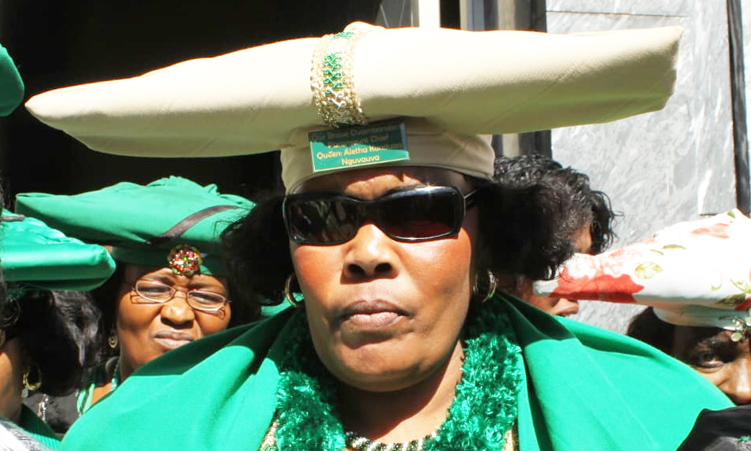An application to have the widow of the late Ovambanderu chief Munjuku II Nguvauva, Aletha Nguvauva, officially recognised as traditional leader of part of the Ovambanderu community should again be considered by the minister of urban and rural development, Erastus Uutoni, a judge has ordered in the Windhoek High Court.
In a judgement delivered on Wednesday, judge Hannelie Prinsloo reviewed and set aside Uutoni’s decision in October 2021 to not approve an application for the designation of Aletha Nguvauva as traditional leader of a part of the Ovambanderu community and ordered that Uutoni should again consider the same application.
Prinsloo made the order after finding that Uutoni did not give the Ovambanderu Traditional Council and Aletha Nguvauva a hearing before he decided not to approve the application for her to be officially recognised as a traditional leader.
When he made his decision, Uutoni relied on information contained in a previous application for the official recognition of a leadership rival of Aletha Nguvauva, Kilus Nguvauva, without first giving her and the Ovambanderu Traditional Council an opportunity to be heard, Prinsloo said.
The Ovambanderu community has been split as a result of leadership disputes since the death of chief Munjuku II Nguvauva in January 2008.
Two of the late chief’s sons, Kilus Nguvauva and Keharanjo Nguvauva, were rival candidates to succeed their father as traditional leader, until Keharanjo – who was a son of Aletha Nguvauva – died aged 26 in April 2011.
Following his death, Aletha Nguvauva took his place as contender for the traditional leadership of the Ovambanderu community.
After court battles between the leadership rivals, a High Court judge ruled in October 2014 that Kilus Nguvauva should be designated as traditional chief of the Ovambanderu community.
Kilus Nguvauva died in July 2021, during the Covid-19 pandemic.
In the case in which Prinsloo gave her judgement, the court was informed that the Ovambanderu Traditional Council was formed by a part of the Ovambanderu community that disassociated themselves from the Ovambanderu Traditional Authority, after Kilus Nguvauva was recognised as chief of the traditional authority.
The court was also informed that an application was made in January 2017 to have Aletha Nguvauva recognised as traditional leader of a part of the Ovambanderu community in the Otjimbinde constituency in the Omaheke region, with their headquarters at Talismanus, about 200 kilometres from the headquarters of the Ovambanderu Traditional Authority in the neighbouring Epukiro constituency.
Uutoni informed lawyers representing the Ovambanderu Traditional Council in a letter in March 2022, that when he considered the application to have Aletha Nguvauva designated as a traditional leader, he took into account that the community she represented was the same community for which Kilus Nguvauva had been designated as traditional leader and that the communal area inhabited by the community represented by her is the same area inhabited by the community led by Kilus Nguvauva.
The Ovambanderu Traditional Council and Aletha Nguvauva were represented by lawyers Tinashe Chibwana and Doris Hans-Kaumbi when their court application was heard in November last year.
Deputy government attorney Jabulani Ncube represented the minister, the president and the Council of Traditional Leaders.
Stay informed with The Namibian – your source for credible journalism. Get in-depth reporting and opinions for
only N$85 a month. Invest in journalism, invest in democracy –
Subscribe Now!






